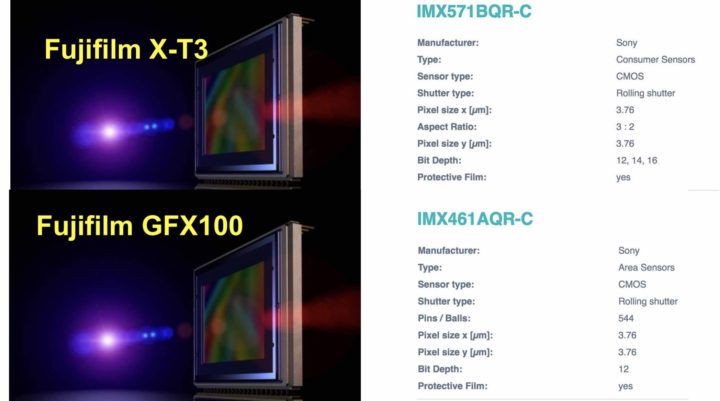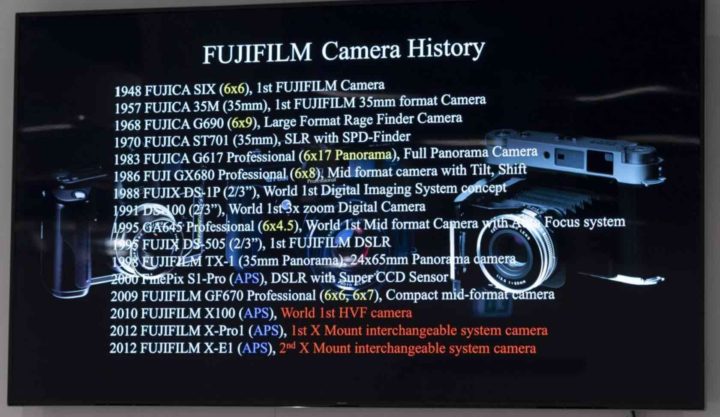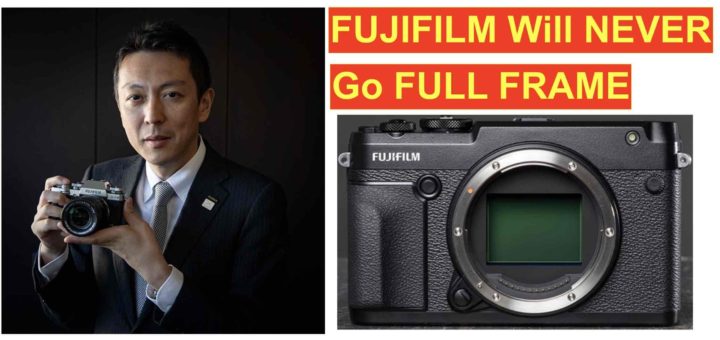Fujifilm X-T3 Sensor: Can Fujifilm Unlock Full 16 Bit Sensor Power via Firmware Update or Maybe Come to Fujifilm X-H2?

Fujifilm Sony Sensors
We recently reported here, that Sony officially listed the IMX571 26MP Fujifilm X-T3 and the IMX461 100 MP Fujifilm GFX100 sensors on their page.
Now these sensors are also listed at framos.com, and it gives us a few more details:
FUJIFILM X-T3
If you check out the X-T3 sensor details (table below), you will see that Sony’s 26 megapixel sensor has a bit depth that can go up to 16. The Fujifilm X-T3, though, shoots at 14 bit in regular mode and I hear 12 bit in sports mode.
It looks like Fujifilm did not/not yet enable 16bit readout mode, and went for 14 bit instead, because they prioritize speed over image quality.
In fact, 14 bit files are significantly faster to read out than 16 bit files, which, on the other hand, offer lower noise than 14bit.
Now, this is not a rumor, not at this stage… but…
… but I wonder if Fujifilm could enabled 16 bit a later stage via a firmware update, and maybe even give us the option to select between 14 bit for ultimate speed or 16 bit for ultimate image quality.
Anyway, Framos writes:
“The IMX571BQR-C is a diagonal 28.3 mm (Type 1.8) CMOS active pixel type image sensor with a square pixel array and 26.11 M effective pixels. This sensor incorporates maximum 36 dB PGA circuit and 16-bit A/D converter. 16-bit digital output makes it possible to readout the signals of 26.11 M effective pixels at high-speed of 6.84 frame/s in still picture mode. In addition, it realizes 12-bit digital output for high-speed 4K moving picture by window readout mode. This sensor is designed for use in consumer cameras. Please consult your imaging experts at FRAMOS if you have any questions.”
See the Fuji X-T3 sensor details at framos here.
Fujifilm X-H2
Fuji Guy Billy already said here, that the 25% better heat dissipation of the Fujifilm X-H1 body over the X-T2 body, allows them to run the X-Processor Pro faster in the X-H1 than on the X-T2.
I guess the same will be valid for the Fujifilm X-H2, and hence it will be able to squeeze even more power out of the brand new Fujifilm X Processor 4.
I wonder if that would make it easier for Fujifilm to offer 16 bit on the X-H2.
Fujifilm GFX100
Framos.com also shares the details of the Fujifilm GFX 100 sensor, the IMX461. They write:
“The IMX461AQR-C is a diagonal 55 mm (Type 3.4) CMOS active pixel type image sensor with a square pixel array and 102 M effective pixels. This IC incorporates maximum 36 dB PGA circuit and 16-bit A/D converter. 16-bit digital output makes it possible to readout the signals of 102 M effective pixels at high-speed of 2.7 frame/s in still picture mode. In addition, vertical subsampling binning and 3-horizontal pixel weighted binning realize high-speed 12-bit digital output for shooting moving pictures.
See the Fuji GFX100 sensor details at framos here.



